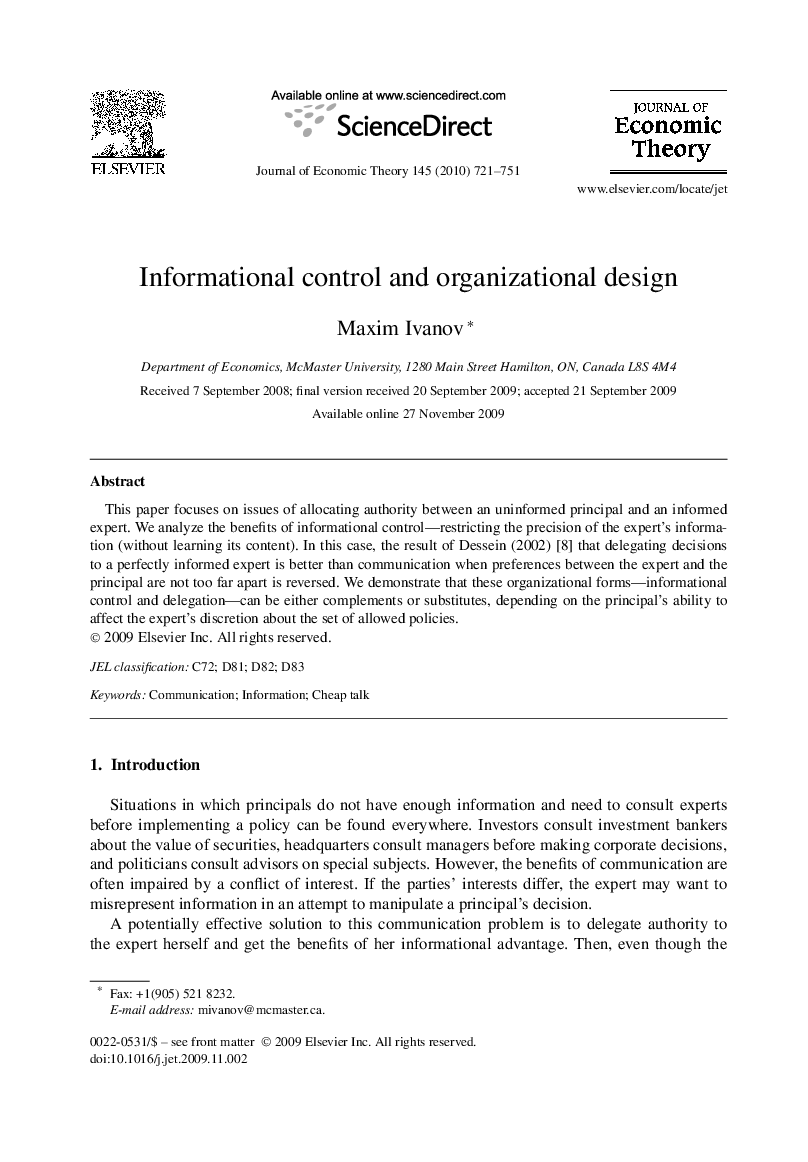| Article ID | Journal | Published Year | Pages | File Type |
|---|---|---|---|---|
| 957555 | Journal of Economic Theory | 2010 | 31 Pages |
Abstract
This paper focuses on issues of allocating authority between an uninformed principal and an informed expert. We analyze the benefits of informational control—restricting the precision of the expert's information (without learning its content). In this case, the result of Dessein (2002) [8] that delegating decisions to a perfectly informed expert is better than communication when preferences between the expert and the principal are not too far apart is reversed. We demonstrate that these organizational forms—informational control and delegation—can be either complements or substitutes, depending on the principal's ability to affect the expert's discretion about the set of allowed policies.
Keywords
Related Topics
Social Sciences and Humanities
Economics, Econometrics and Finance
Economics and Econometrics
Authors
Maxim Ivanov,
